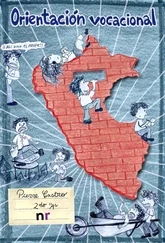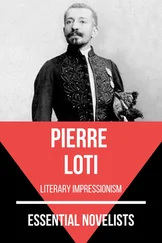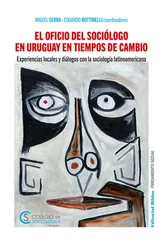We passed the gated entrance to the most famous cemetery in France. Sitting on the steps was a woman breast-feeding her baby.
Stella turned around, with tears wetting her cheeks.
“Daddy, I want to visit grandma’s grave.”
“I’m sure we will soon.”
I could see in his eyes that he didn’t believe his own words, and that was unnerving. What does he know that’s making him lie to his own daughter? I asked myself. I searched for words of comfort to say to Stella. Realizing I would be deluding both of us, I sat silent and stared at her red hair.
Our bus reached Boulevard Gambetta. On the corner was an elderly gentleman relieving himself at a pissoir , a green kiosk with a pointed roof, encircled by a three-foot-wide metal band that obscured the user’s midriff. Some of the prisoners giggled and waved.
The man looked up and raised his hat. As we went down rue de Paris, a couple of kids on roller skates raced after our bus, trying to hitch a ride, but they backed off when they saw the German guards.
The buses turned onto avenue du Parc and we found ourselves at our destination, a horseshoe-shaped housing complex with an expansive cinder-lined courtyard. Barbed wire surrounded the four-story buildings and a large gate sealed the compound’s opening, which was manned by gendarmes instead of Nazis.
I turned to Stella’s father as our bus drove into the courtyard.
“Is this a French military brig?”
“This is part of a new agreement between the Vichy and the Occupation administration. Frenchmen doing the Nazi’s dirty work,” he said. “They’re the jailers of many brave men who fought side by side with them when the Germans invaded.”
The captain of the gendarmes stepped onto the rear platform and was handed a ledger by one of the SS.
“Raise your hand when I call your name,” he barked.
When he came to Pierre Berceau, I held up my arm.
“Stella, Ruth, and Emile Binda….”
The captain stared at Mr. Binda, then looked down at his feet.
Mr. Binda shook his head.
“He used to stand at attention and salute me when I entered the ministry building,” he whispered to his family.
“ Raus!” The two SS guards waved us off the bus.
As I helped an elderly couple with their luggage, Frenchmen with red armbands directed us to the center of the courtyard, where they had us line up three deep. These red armbands were the camp police, the Nazis’ lackeys, mainly well-educated professionals but prisoners just like us. They received certain privileges for administrating the camp. It was the efficient Teutonic way of saving their manpower for the battlefield.
The buses pulled out and the gendarmes closed the gates. A red armband, whose mannerisms made me think he had been a school-teacher, briefed us.
“You’ll be housed in the building to your left. The construction of all these buildings hasn’t been completed, but for lodgings they are more than adequate. The connecting building at the end of the yard is off limits. It’s quarantined. We have a scarlet fever epidemic here in Drancy, but there’s no reason to be alarmed by this. All those that have been stricken are quarantined. Now, if you have had scarlet fever, please step out.”
Without thinking I stepped forward.
“Only one?” the man asked. “Don’t be afraid. We need you because you’re immune. You cannot catch it twice.”
I started thinking I had been foolish, and then I found Stella standing next to me. Only a handful of us stayed in Drancy. The rest, mostly Jews, gave the Nazis the twelve hundred inmates they needed to fill a train. The Germans would never waste coal on a light load. To Stella’s relief, her parents were able to avoid the deportation because of her assignment in the quarantine ward.
Stella and I spent many hours together in that ward. While she attended to the needs of the stricken, I carried the pails that their bedpans filled down to Le Château. Our shithouse got its prestigious name because of the castle-like crenellations at the top of the walls. Every day I emptied one hundred and ten pails, making fifty-five trips up and down four floors. My legs must have thought I was living in the Eiffel Tower. And at the end of every shift I scrubbed the stairs to erase the double yellow line created by the sloshing pails.
I would watch Stella with admiration and warmth as she fed patients whose hands were too shaky to hold a spoon, applied ointment to bedsores, and sponged down bodies that were wracked with fever. There wasn’t a single patient who died whom she didn’t shed tears for.
“You cannot cry for everyone,” I told her.
“Someone should.”
“You’re going to make yourself sick.”
“I can’t help that it acts on me this way,” she shot back. “Anyway, they said we couldn’t catch it again.”
“But there are a lot of other things you might catch.”
“Don’t worry about me. I’ll be fine.”
I could make her laugh and evaporate some of her tears with my Laurel and Hardy impersonations. I was never sure if she was giggling at the jokes or just found me incredibly silly. Regardless, it seemed to distract her from the sadness that surrounded her.
Stella also enjoyed my recollections of my mother’s singing.
She felt it was a pity that my father had stopped her from touring, but she thought it must have been magical to grow up in a house echoing with arias. She missed her violin and was overly concerned that she would lose her ability to play.
“If you’ve been practicing since you were six, there’s no chance of that,” I reassured her.
Emptying the buckets wasn’t my only task. I was in charge of cleaning Le Château, too. Marius, the Corsican plumber, gave me the title “ Roi du Château ,” or “King of the Shithouse.” To keep the long row of concrete squat toilets disinfected, twice a day I would sprinkle lime around the funneled holes in the floor. Easy enough, but some prisoners had got into the habit of painting the ceiling with their feces, especially in the women’s section. This exercise in frustration and animosity toward the Nazis made my life a stinking hell. It was impossible to escape the brown raindrops as I struggled to unglue their mess with a garden hose and broom. I had only the clothes that I had been arrested in, and the stench on them became unbearable for everyone. When Stella stopped brushing up against me I knew something had to be done. Thankfully, one red armband took me to a storeroom full of suitcases and clothing.
“Take anything that fits. These belonged to the departed.”
I didn’t ask if “departed” meant dead or deported. The armful of tailor-made suits I quickly chose got me the nickname “the Dandy of the Shithouse.”
I was also responsible for emptying the pails of those prisoners in solitary confinement, who were held in the same building those in quarantine. This was where the SS and Gestapo tortured men and women. Many times I would find a mangled corpse instead of the living person I had spoken to the day before. Standing over these corpses, I would ponder if they had died because they refused to reveal their contacts in the Maquis or because they wouldn’t disclose the hiding places of their art collections, jewelry, or other coveted valuables. To me, it was foolish to die for a painting or diamond ring, and it was sad that those Resistance members probably knew nothing more than the names of their contacts, which were more than likely false names.
Stella and I quickly found ourselves acting like boyfriend and girlfriend. We never discussed it or announced it to anyone, but we were an item. Hell, the fifty men I shared sleeping quarters knew she was “my Stella.” How could we not become involved? It was inevitable. In each other’s arms, we forgot for a few sweet moments the gravity of our predicament and dreamt of fairytales futures.
Читать дальше












